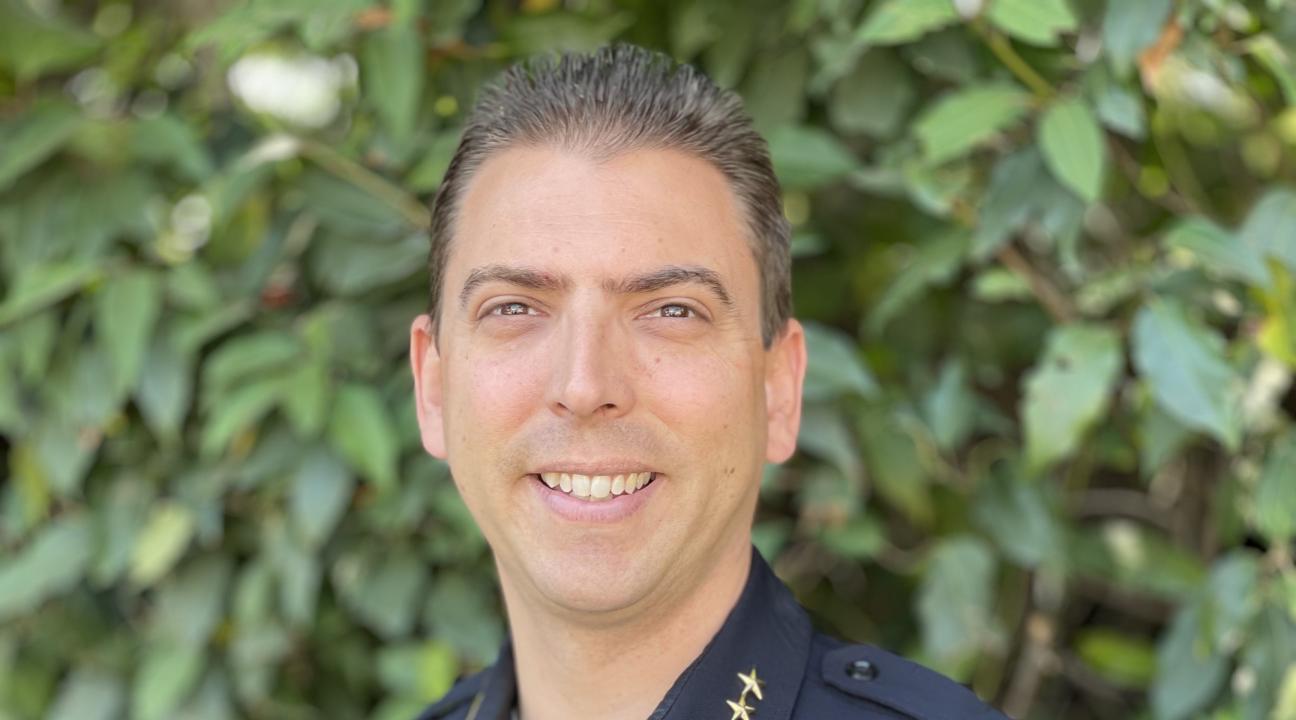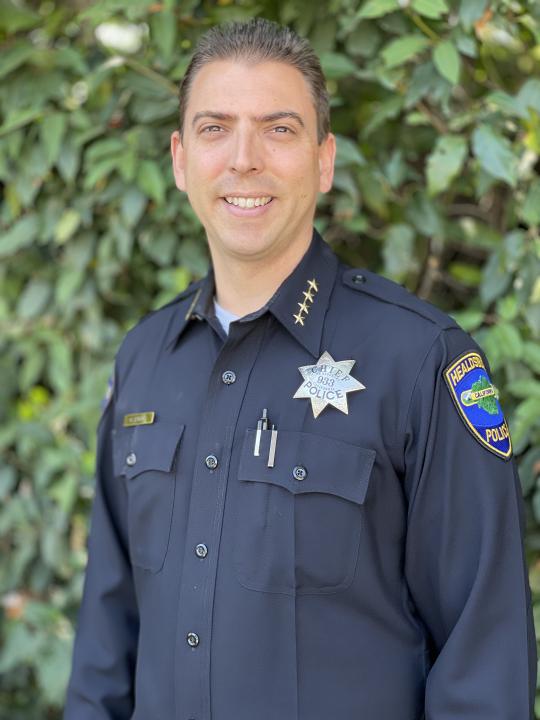From Intern to Police Chief: CCJS Alum Rises to the Top
Q&A with Healdsburg Police Chief Matt Jenkins
CCJS alumnus Matt Jenkins (Class of 2003) was appointed chief of the Healdsburg Police Department on July 29, 2021. When he did his internship with the department in 2002, he never imagined that he would become the police chief and lead the department during turbulent times. We had a chance to check in with Chief Jenkins and to ask him about his new job.
How was your first 5 month as the chief of the Healdsburg Police Department?
The first 5 months have been great and have flown by. Luckily, the department was in a good position when I became chief, so I haven’t had to do a lot of heavily lifting or had to implement significant changes. Most days have been filled with meetings, and in an age of Zoom, a lot more can be scheduled on one day! Outside of meetings, I have been focusing on setting groundwork for goals that I have for the department.
When you joined the department in 2003, did you ever think that you would one day become its chief?
Becoming a police chief wasn’t on my radar when I started. My focus was on being the best police officer that I could be and learning as much as I could. Early in my career, I was considering working 5-7 years in local law enforcement before applying to work for one of the federal investigative agencies. However, in those first 3 years, I was afforded a lot of opportunities that set me up for future success – I was selected to be a school resources officer; I had the opportunity to write and manage a grant program; and, I had the opportunity to amend a city ordinance. These highly unusual opportunities for a relatively new officer allowed me to promote to sergeant after 3 ½ years. It was after this promotion and as I started working at higher levels in the department when I started to think that being a police chief would be a great opportunity.
Give three goals that you want to accomplish as police chief.
As Healdsburg’s police chief, I am hoping to: (1) recruit and retain a diverse workforce that is representative of the community that we serve; (2) establish a method to receive public input on the police services that our community receive after each call for service; and (3) be an active partner in our community
How did your education and training prepare you for your role as police chief?
I would not be in the position that I am if it was not for my education and training, and it all started as a CCJS (then it was Criminal Justice Administration) student. My coursework at SSU provided a solid foundation for criminal justice knowledge beyond just police work and it honed my critical thinking skills, which are fundamentally important for anyone looking to have a long and successful career in law enforcement.
After graduating from SSU, I still had a desire to learn and pursued a Master’s degree in Criminal Justice Administration. Years later, I had the opportunity to go back to school for a Master’s degree in Law Enforcement and Public Safety Leadership. Along the way, I was also able to attend several law enforcement specific training courses – POST’s Supervisory Leadership Institute and POST’s Command College among many others. As a police chief, it is my responsibility to have an understanding of a myriad of areas that are not typical at the line level, including human resource management, municipal budgeting and finances, and organizational development. Each college program and each training have given me the knowledge and skills to be able to navigate through these areas.
Did you always plan to go to college?
From an early age, I always wanted to go to college. My parents instilled the value of education in me from an early age, and our conversation about education never ended with high school; it always continued into talks about college. Consequently, I never considered not going to college as an option.
How did you end up majoring in criminal justice at Sonoma State University?
I entered Sonoma State as a biology major with aspirations of applying to medical school. Needless to say, I did not graduate as a biology major. In fact, I began exploring other majors halfway through my first semester as a freshman when I realized that biology was not for me and that I didn’t see myself completing SSU only to go on to 4 years of medical school followed by a residency.
Flipping through the course catalog, I was drawn to the criminal justice program. I came from a law enforcement family and had always had an interest in it. After meeting with the department chair, I made the switch and never looked back.
When did you realize that you wanted to pursue a career in criminal justice?
The decision to pursue a career criminal justice came after switching majors and starting to make more CJA classes. I enjoyed going to class on a daily basis, and I felt like I was excelling, which was completely the opposite of when I was taking biology classes. It was then that I knew I made the right decision.
What advice do you have for students considering a career in criminal justice?
The best advice that I can give students is to never stop learning. More so than ever, those entering law enforcement and other criminal justice fields need to be better educated and better critical thinkers in order to meet the expectations of the communities that they serve.
Critical thinking is a perishable skill and being a life-long learning will help keep it from lapsing. As I am sure all the CCJS students have studied and know, a split-second decision they may make at work can be scrutinized for years in the courts, using slow motion video of varying angles. The more knowledgeable and confident they are going into a situation, the better prepared they will be for whatever happens and the better decisions they will make.



